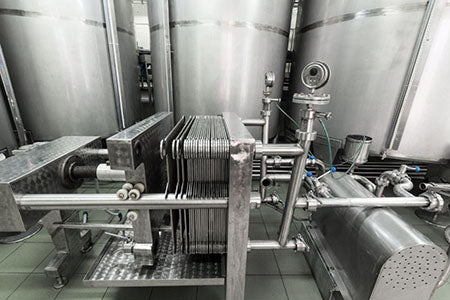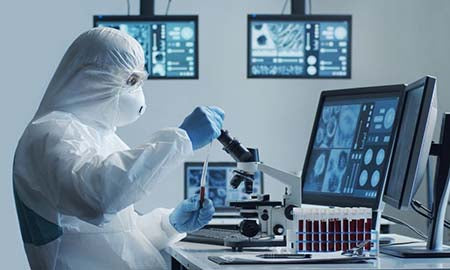When your biological or pharmaceutical facility needs a new bioreactor, there are several factors you should consider. From the size of the bioreactor to how accessible it is for cleaning, it’s essential to put time and effort into your search to ensure you find the best option for your unique needs. Read on to discover important things to consider when buying a bioreactor.
What Is a Bioreactor?
A bioreactor is a vessel designed to create an environment for cells or enzymes to convert biochemicals into useful products. There are many types of bioreactors that have different applications depending on their specifications. For instance, bioreactors can vary greatly in size and are typically made from either glass or stainless steel.
These vessels are used for anything from cell growth to milk processing to protein synthesis and are essential to many biological and pharmaceutical labs.
Workspace Requirements
The first and single most important factor is your unique workspace requirements. Not every workspace has the physical space needed to house a 50L bioreactor; in fact, very few facilities are equipped to handle a bioreactor that’s larger than 25L without making some changes to the space.
Fortunately, there are bioreactors that range in size from 2L all the way up to well over 50L, depending on your unique needs.
There are a few necessary components to bioreactor installation, including cooling water, an electrical supply, dry air and other gases, process water, dry steam, and a drain with pipes that are heat-resistant.
Once you know the specifications of the space where you’re planning to install the bioreactor, you can hone in on exactly the size of bioreactor you need. At International Filter Products, we have bioreactors in the 2L, 5L, 10L, 15L, and 25L sizes to ensure you have a range of options.
Construction Materials
Not all bioreactors are produced using the same materials—for benchtop bioreactors, the most commonly used materials are stainless steel, glass, and single-use plastic. Each of these options offers unique features, so it’s essential to understand the benefits of each to know which is best for you.
Stainless steel bioreactor systems offer the ability to pressurize the contents, which is especially helpful when you need to drive oxygen transfer. This option is also ideal if you want total flexibility with sensor, sparger, and dip tube configurations.
Glass bioreactors are a more inexpensive material, and they have the advantage of being transparent. This is a nice feature that allows you to see what is going on inside the bioreactor during operation, but glass bioreactors become less accessible as they get larger.
Single-use bioreactors have their place as well, as they require no clean-up and come with a reduced risk of cross-contamination. Unfortunately, single-use bioreactors wind up costing more in the long run, which can be a problem if you’re watching your budget closely.
Thinking About Scale-Up
When you have a smaller bioreactor and a larger system, it’s important that the smaller one can serve as a functional model for the larger process. That’s why it’s crucial to ensure that whichever bioreactor you choose is capable of the process parameters that are available at a large scale.
Another reason that stainless steel bioreactors are ideal is that it’s critical to preserve every parameter you can when transferring work from one scale to another. Because most large bioreactors are made of stainless steel, having a smaller-scale bioreactor also made from stainless steel can reduce variables to help you produce consistent results.
In addition to the aspect ratio, stirring mechanisms, and general format staying constant to scale, you must also ensure that controls and sensors scale accurately.
Consider Costs
When choosing a bioreactor (or any piece of lab equipment), the startup costs and operating costs are of paramount importance. It’s generally a best practice to start your work at the lowest volumes that are still practical, as this consumes the least resources, as well as saves on energy and other utilities. Once you scale up any lab process, you begin incurring greater and greater costs with each test.
Because you’re working on a smaller scale, you need to be careful when measuring everything. Should you decide to scale up, it can be tricky to get all the ratios right to achieve the same results.
Microbial Systems
Bacteria and cells have vastly different needs and characteristics, so you’ll notice bioreactors and fermenters functioning rather differently when you reach a large scale. However, as you scale things down, the differences are scaled down as well. In some cases, devices may even be marketed to be functional as both a bioreactor and a fermenter.
The concern arises when discussing the mixing and aeration systems of each option. Cells are delicate, so things like baffles and Rushton impellers pose a risk of damage. You must use the right sparger to keep the cells intact.
Cleaning Access
Not all bioreactors are created equal; just as some are made of glass and others of stainless steel, some bioreactor constructions are more prone to creating issues when it’s time to clean. When there are components hidden behind housings, or difficult access to stirrers, maintenance and repair become more of a hassle.
Because a thoroughly cleaned and sterilized bioreactor is so important to have for each test, you need to make sure that the bioreactor you purchase has easy access for cleaning. Otherwise, you never know what particles may stick around from one batch to the next.
Intuitive Operation
In addition, you never want any product to be difficult to work with. Even when discussing something complicated like a bioreactor, there should not be anything unintuitive that gets in the way of daily operation. At International Filter Products, we make sure that our stainless steel bioreactors are simple to utilize from day one.
Temperature Control
Finally, a bioreactor without temperature controls is not much use to anyone doing detailed work. That said, some companies do make them. Make sure you read listings carefully to make sure the bioreactor you’re purchasing comes with the much-needed temperature controls.
Now that you know these important things to consider when buying a bioreactor, we hope you have a better sense of what you’re looking for. If you require a stainless steel bioreactor, we have supplies in stock now. The team here at International Filter Products can assist you if you have any questions or concerns about any of our products. Give us a call at (818) 504-8115 or contact us via our online form. We look forward to working with you!



